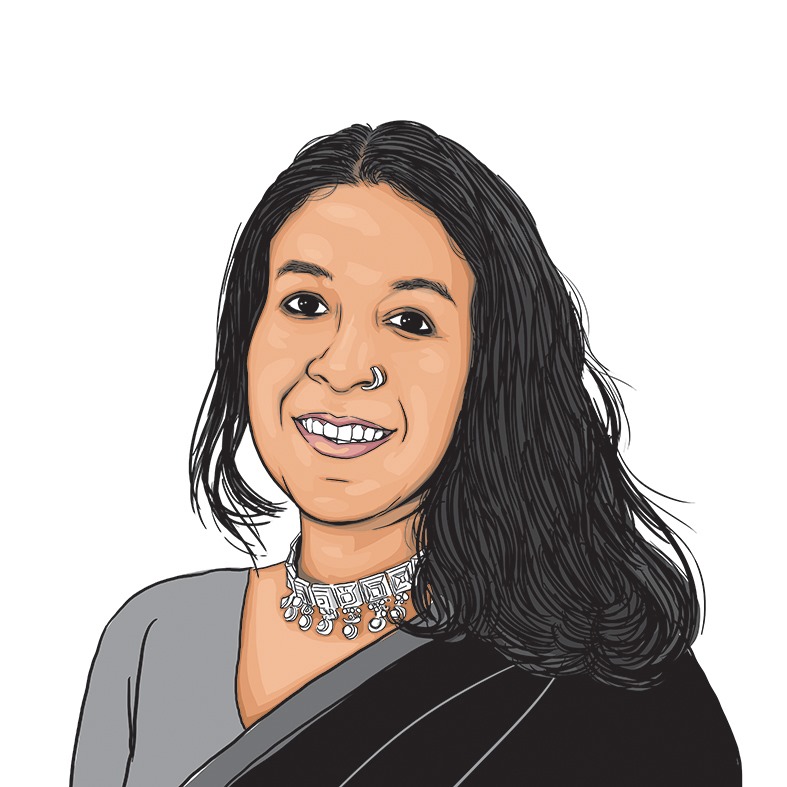Opinion In the game of probability, we cannot decide our colour or sex. Instead, we can look within to find the light
Among the multiple imposed identities that I try to look through, these two identities still trigger past trauma, pricking the scabs and the stubs.
 Colour, gender and other identities are social constructs, the patterns that the prism of society throws when we let ourselves pass through it. (Credit: Pixabay)
Colour, gender and other identities are social constructs, the patterns that the prism of society throws when we let ourselves pass through it. (Credit: Pixabay) A few months ago, I was invited to speak at a gender conference in Thiruvananthapuram, which was inaugurated by the Chief Secretary of Kerala, Sarada Muraleedharan. Being a part of the microcosm of the civil services, I had heard about her. However, that morning, what she said left me spellbound. I knew immediately that I had found an idol. The very next day at a dinner with batchmates who were working under her, I spoke about how star-struck I was. I revelled in vicariously knowing her through their lens, for their appreciation added to my resolve to hang my boots in my career with the same spirit that she exuded.
I have not been able to go back to Kerala since, but I knew where the signposts of my career had to lead me. So when the news feed buzzed with her post, for me, it was entirely personal. In a Facebook post, she writes that her stewardship as the chief secretary has been called “as black as my husband’s was white”. She took over charge as chief secretary from her husband. In her post, she writes about the “relentless parade of comparisons” with her predecessor, and how the particular comment was about being labelled black “with that quiet subtext of being woman”.
While I read and re-read her post, I introspected whether I was more offended at the reference to “the” colour; or whether the subtext of being a woman was the prime mover behind my indignation. And I realised, neither and both. Neither, for I have become so inured to the constant ethnocentric biases and prejudices imposed upon us (“us” refers to neither colour nor gender) that they have majorly lost their power to carve a fresh wound, save for some unkindest cuts. Among the multiple imposed identities that I try to look through, these two identities still trigger past trauma, pricking the scabs and the stubs.
I was instantly reminded of reading a few years back about the “Ovarian Lottery”, a thought experiment by Warren Buffet (based on an idea by John Rawls), which basically talks about the probabilistic event of taking birth in a particular set of circumstances and how it may impact the trajectory of our lives. And I beg to wonder, and ask — and I know the wait for answers will be a long one — why something as probabilistic as this has such sway over how our mettle is tested. Leave alone tested, for she writes about the relentless parade of comparisons, why is a probabilistic event, be it gender, colour, or the plethora of other social identities, considered the touchstone of one’s competence, eligibility or even our access?
Further, who defines and how do we define the barometer of what is white and black, of what is fair and unfair, deliberately though grudgingly? For as far and as bright as the light reaches, change happens. But are we still beholden to archaic notions of seeing the colour we are taught to see, and not the colour that makes us revel in our identity as an individual?
I am also reminded of two phrases that still sit ready on our tongues, for we are, unfortunately, creatures of habit, and I cannot but be dismayed at the contrast they evoke. One is “tall, dark and handsome”; notwithstanding whether “dark” here refers to the colour of the skin, the colour of the hair, or the mysterious dark aura of a “desirable man”, the phrase is used as an unmindful compliment for those who may appreciate it.
At the same time, popular imagination has been captured by another phrase, “fair and lovely”, originally a cream for young women who had to be “fair” to be lovely. Here, the word “fair” is unambiguous, leaving no room for interpretation, but more importantly, leaving no room for authenticity. While we raised a generation of girls aspiring to be fair and lovely to be desirable, we forgot to tell the kids, all genders alike, that the real “fairness” comes from the breadth of their intellect, the depth of their compassion, and the fairness of their judgement. Everything else is superficial; scrape the surface and you will find colours that add beauty to your persona, and that is the real test.
Colour, gender and other identities are social constructs, the patterns that the prism of society throws when we let ourselves pass through it. We may not be able to change the prism overnight, but can we change the lens to begin with? And it is not just for the “un‘fairer’ sex” to ponder upon, it is for all of us. We are all perpetrators and survivors of probability, and that must remind us to look for the one within, within us and those around, for it is light that guides us, not just how we may reflect or absorb it.
The writer is an officer of the Indian Revenue Service (Income Tax) and has been working in the field of gender for the past many years. The views expressed are personal



